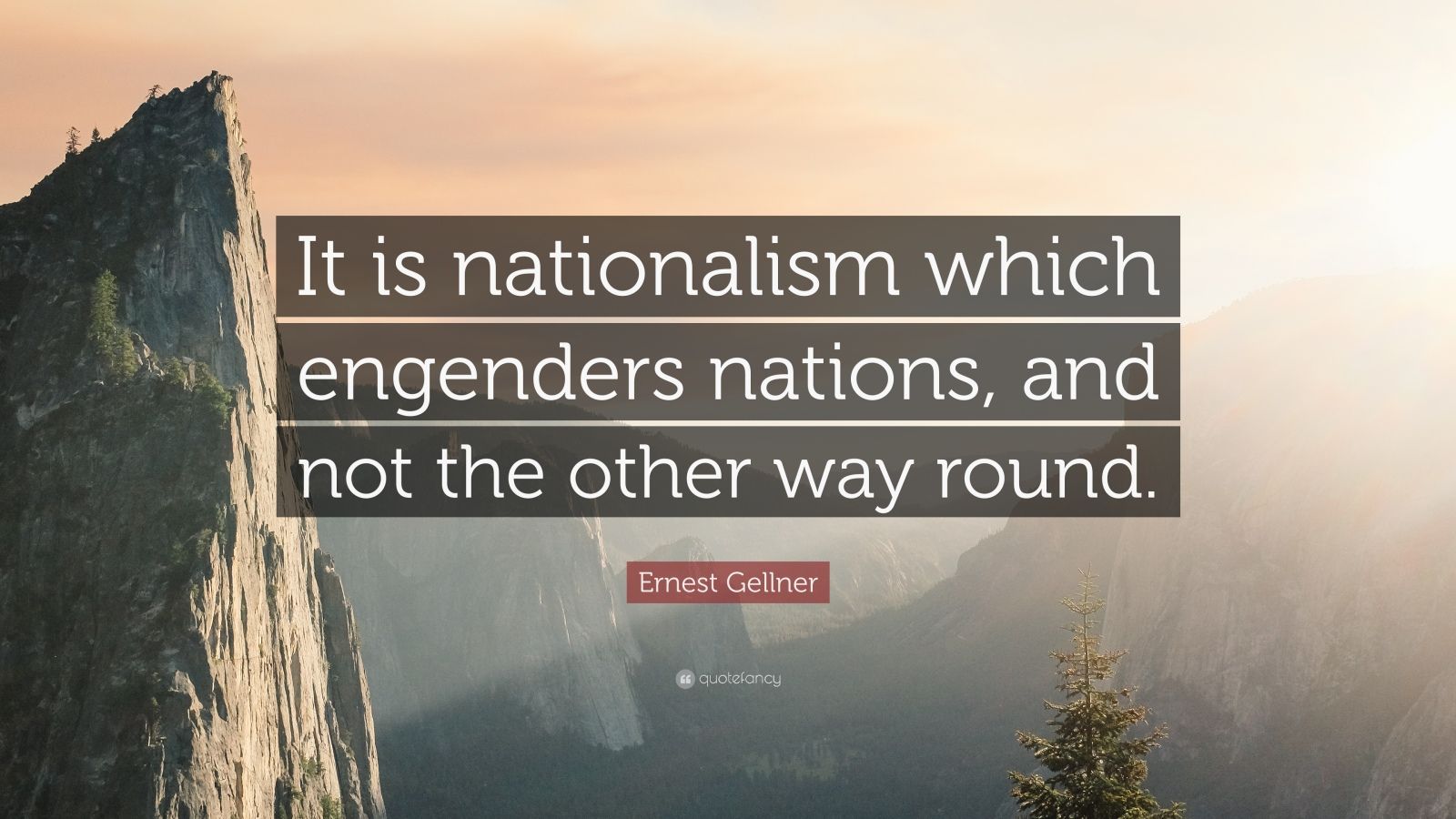

The principle one state, one culture makes itself felt, and political units which do not conform to it feel the strain in the form of nationalist activity. The functioning of the society depends on an all-embracing educational system, tied to one culture and protected by a state identified with that culture. Taken together these transform the relationship between culture and the state. A society that aims for affluence and economic growth, Professor Gellner argues, depends on innovation, occupational mobility, mass media, universal literacy, and education in a shared, standard idiom. The present volume interprets nationalism in terms of its social roots, which it locates in industrial social organization.

Its irruption into the modern world is often explained as a resurgence of primitive, atavistic instincts, or as a delusion fostered by a few theoreticians, politicians or propagandists. And finally we return to the American case with the question of whether America qualifies as a nation and consider the way that the myth of nation grows and is re-interpreted, and how American identity may evolve in the future.Nationalism is one of the most powerful forces in the modern world, yet it is surprisingly little studied and only imperfectly understood, either by its adherents or its opponents. Our study of the Congo shows the problematic mix of colonialism and ethnolinguistic identities with the nation-state system. However, while the Czechs might have been the ideal liberal nation, in Russia we see how ideas of nation and empire can challenge international stability. In succession, each case study illustrates different aspects of the evolving concepts of nation and national identity, concepts that in their eighteenth-century origins were seen as normatively laudable and fit well with liberal ideas about self-determination and popular sovereignty.

Theories examined include traditional ones like those of Ernest Gellner and Benedict Anderson, and we also use Roland Barthes' semiotic theory of myth to help us understand the idea of nation. As we study the theory of nation, we consider the politics of our own preconceptions of nation in the United States (or wherever we hail from). In this course we study theories of nation, then turn to detailed case studies including the Czech Republic, Russia, Congo, and the United States. Nationalism, a powerful force for centuries, is growing even more important.


 0 kommentar(er)
0 kommentar(er)
